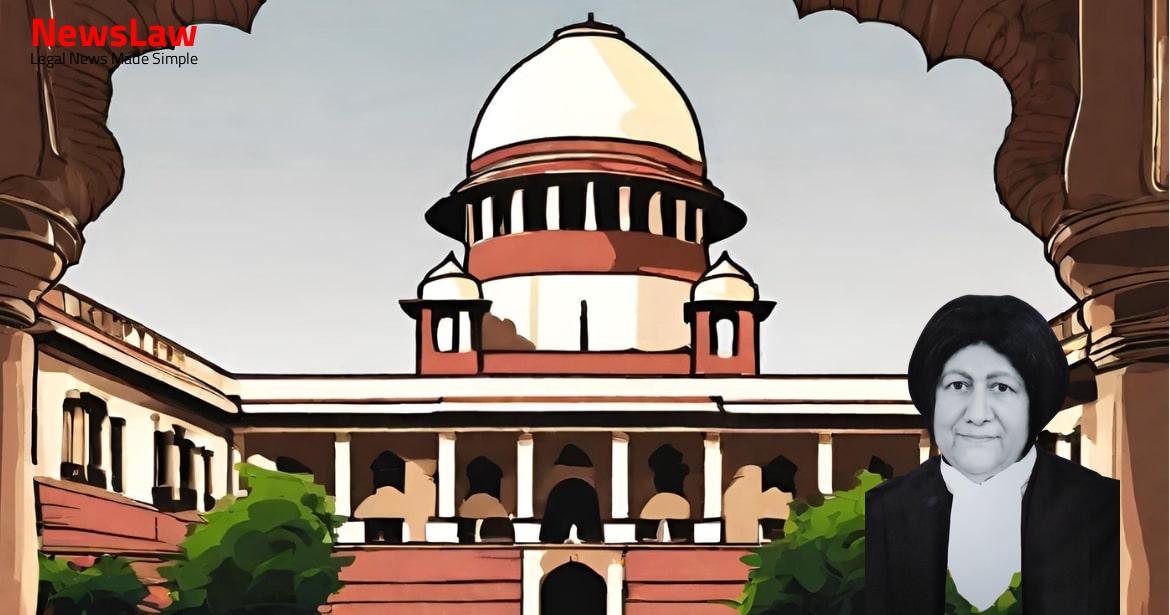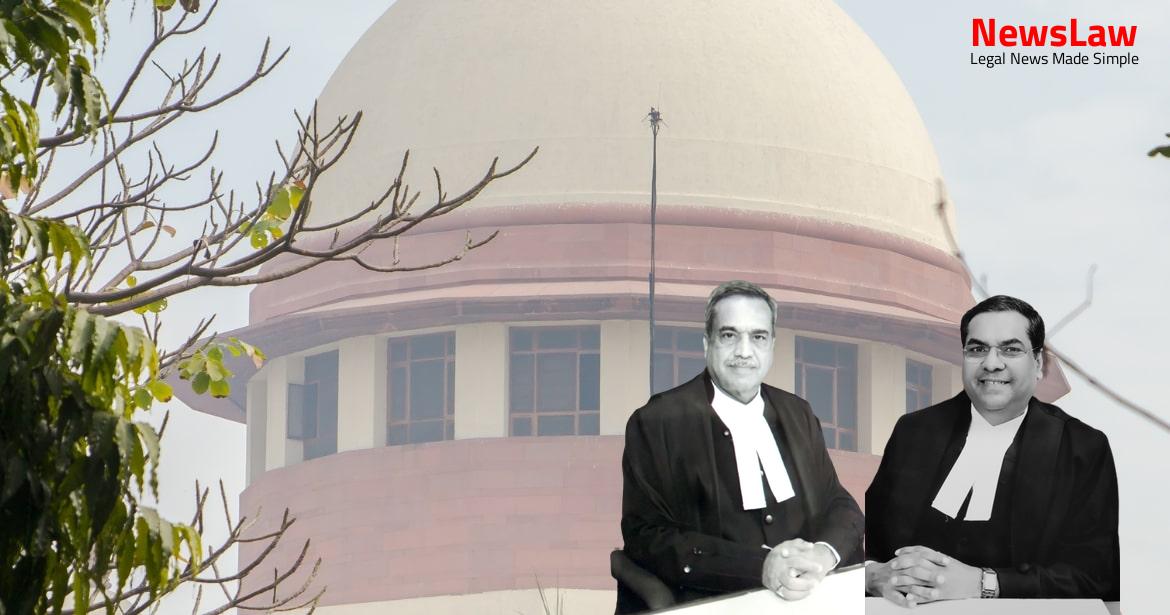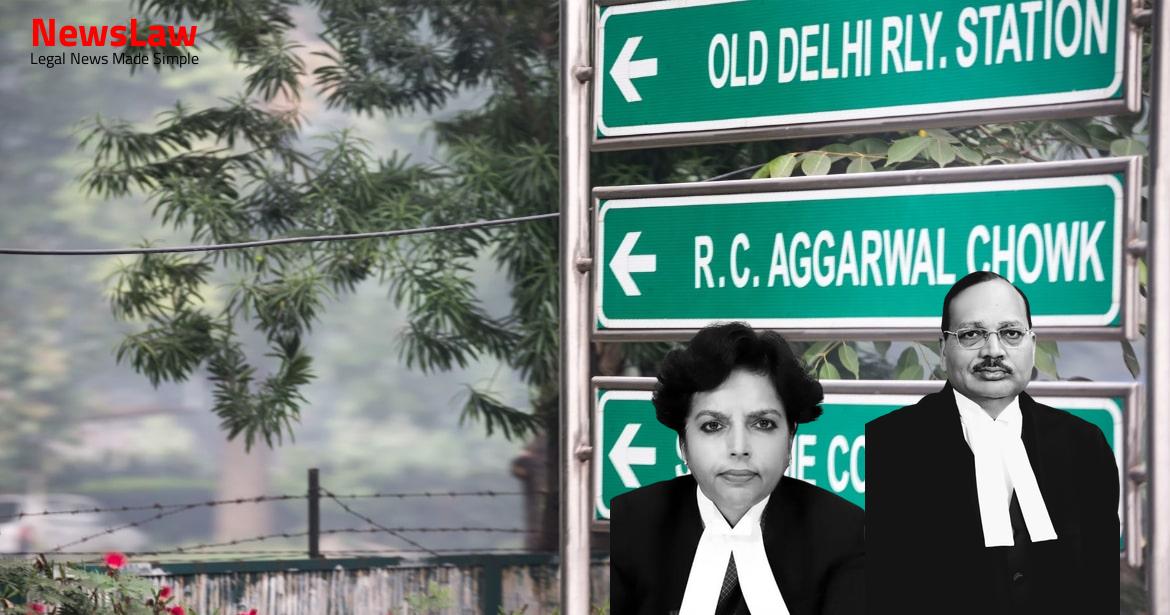In a recent legal case, the court’s analysis of the presumption of due service in proceedings sheds light on the critical aspects of legal notifications. The court’s ruling underscores the significance of adhering to proper procedures and the implications of deemed service via registered post. Let’s delve into the nuances of this legal perspective within the realm of court judgments and procedural compliance.
Facts
- The appellant as the highest bidder with a bid of Rs.1,25,000/- but deposited only 1/4th of the amount as per procedure.
- The application filed by the appellant after 8 months from knowledge of execution proceedings was dismissed for being filed after the period of limitation with false reasons.
- No evidence was produced to deny the process server’s report of serving notice on the applicant on 02.04.2000.
- Various court orders and applications were mentioned, indicating lack of vigilance on the part of the appellant.
- The appellant complied with legal requirements as an auction purchaser and was issued a sale certificate.
- After multiple proceedings and appeals, further proceedings were stayed by the court order on 20.02.2020.
- Respondent No.2 filed a suit for recovery of money against Respondent No.1 for failure to refund part sale consideration.
- Process server’s report of serving notice on the applicant was highlighted as a crucial event in the case.
- Warrant of sale of property was issued on 06.12.2000, leading to auction on 16.12.2000 as per court directions.
- Respondent No.2 filed an application seeking recall of the court order.
- The High Court dismissed the application stating that the suit was already restored to the file and issues were framed.
- Despite the court order, the High Court granted relief in favor of Respondent No.1.
- Respondent No.1 was not entitled to claim relief due to the auction being allowed.
Also Read: Electoral Malpractices in Mayor Election
Arguments
- Mr. Pradeep Kumar Yadav, learned Advocate, argued that the orders passed by the High Court should not be interfered with.
- He mentioned that the Suit had been restored to the file and should be allowed to reach its logical conclusion.
Also Read: Balancing Power and Transparency: Electoral Bonds Struck Down, Disclosure Mandated
Analysis
- The order dated 19.02.1997 was in conformity with legal requirements.
- Respondent No.1 allowed the property to be put to auction in December 2000 before filing an application under Order IX Rule 13 of the Code.
- The summons issued via registered post was refused, as per the order dated 19.02.1997.
- The process server’s report on 04.04.2000 indicated that notice was served and duly acknowledged by Respondent No.1.
- Despite being aware, Respondent No.1 did not take action.
- If the defendant or his agent refused to take delivery of the postal article containing the summons, the court issuing the summons shall declare that the summons had been duly served on the defendant.
- When a notice is sent by registered post and returned with specific postal endorsements like ‘refused’, ‘not available in the house’, ‘house locked’, ‘shop closed’, or ‘addressee not in station’, service of notice is deemed to have been effected at the time of delivery in the ordinary course of business unless proven otherwise by the addressee.
- Section 27 of the General Clauses Act, 1897, creates a presumption that service of notice has been completed when sent to the correct address via registered post.
- Due to the presumption of Section 27, if a notice is mentioned to have been sent by registered post to the correct address, it is unnecessary to additionally state in the complaint that, despite being returned unserved, it is deemed to have been served or that the addressee is deemed to have knowledge of the notice.
Also Read: Recall of Resolution Plan Approval: Legal Analysis
Decision
- The High Court rightly observed that Respondent No.1 was not vigilant.
- The Appeals are allowed and the orders passed by the High Court are set aside.
- The application by Respondent No.1 under Order IX Rule 13 of the Code is dismissed.
- After completion of proceedings in auction, a sale certificate was issued in favor of the Appellant.
- The impugned judgment and decree are set aside.
- The appeal is allowed with costs of Rs.1000.
- Due service has to be presumed.
Case Title: VISHWABANDHU Vs. SRI KRISHNA (2021 INSC 570)
Case Number: C.A. No.-006094-006095 / 2021



